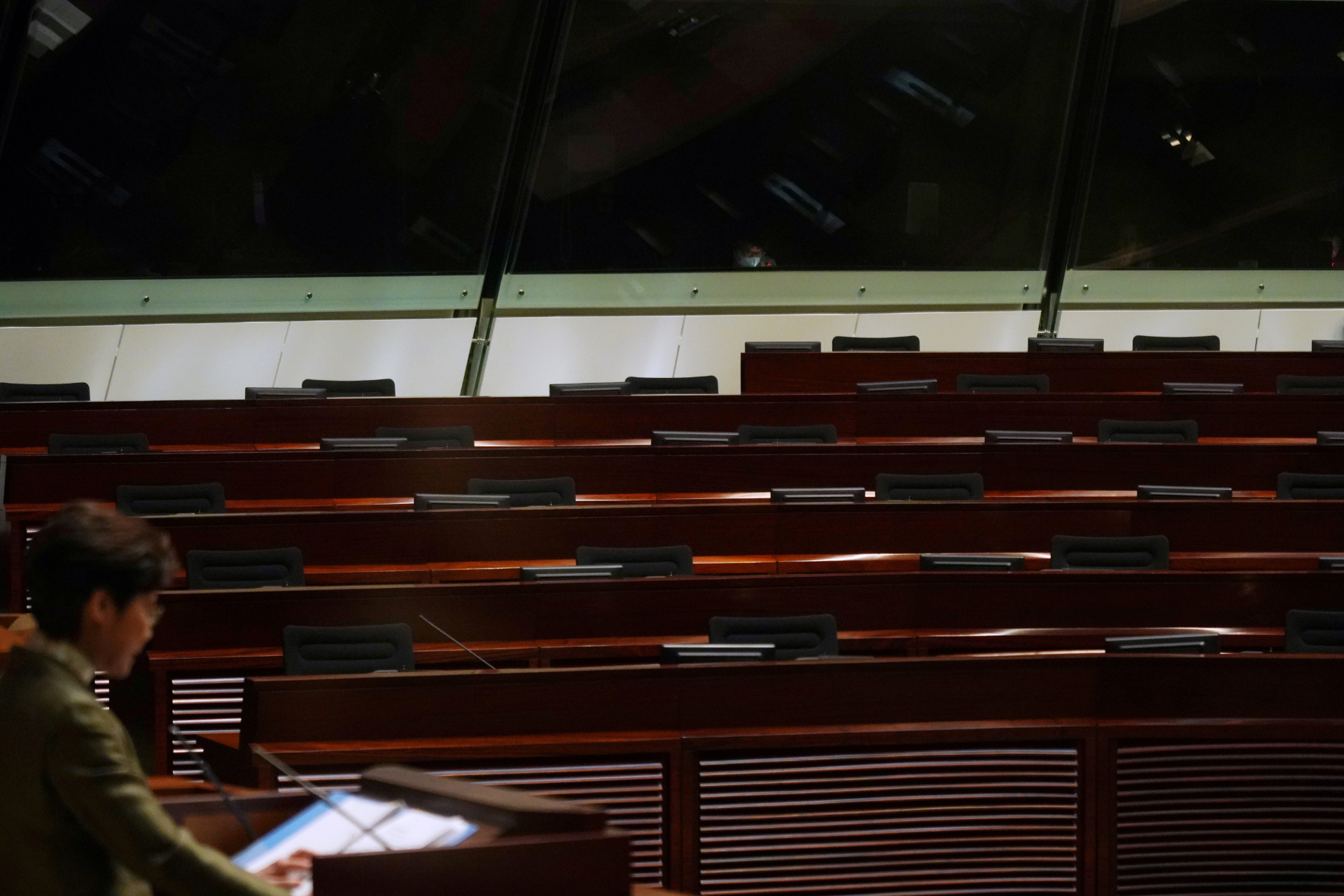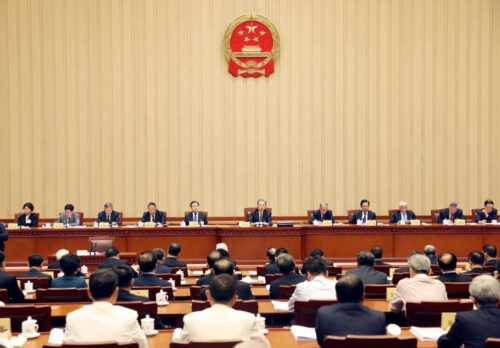Beijing to further tighten grip on Hong Kong by enshrining patriotism test for public office
Last summer, the National People’s Congress in Beijing bypassed the Hong Kong Legislative Council to impose a national security law. Next month, the NPC is expected to take a similar action to ensure that only “patriots,” as Beijing defines them, hold public office in the city.

After mass protests in Hong Kong in 2019 that directly challenged the authority of the central government, Beijing imposed a sweeping national security law on the city in the summer of 2020. That law was used to effectively crush the local democracy movement, intimidating — and increasingly, arresting — critics and disqualifying opposition candidates for public office.
Now Beijing is considering a more complete overhaul to Hong Kong’s partial democracy. This has been signaled in two key speeches over the past month:
- Chinese leader Xí Jìnpíng 习近平 said on January 27 that “the principle of ‘patriots governing Hong Kong’ must be always upheld.”
- Xià Bǎolóng 夏宝龙, the head of the State Council’s Hong Kong and Macau Affairs Office, reiterated the same principle yesterday, adding that “key posts under every circumstances must not be taken up by anyone ‘who goes against China and disrupts Hong Kong.’”
When the National People’s Congress gathers in Beijing starting on March 5, it is expected to again bypass the Legislative Council in Hong Kong, and “curb the influence of Hong Kong opposition groups on a body that selects the city’s top official, taking seats away from pro-democracy politicians and handing them to pro-Beijing loyalists,” the Wall Street Journal reports.
- The “revisions would drastically reduce, or potentially eliminate, the 117 seats assigned to Hong Kong’s district councilors,” sources told the WSJ. In late 2019, pro-democracy candidates overwhelmingly won district council elections, shattering the government’s myth that a “silent majority” of Hongkongers wanted the protests to stop and the status quo restored.
- The NPC may also create a committee tasked with investigating “every candidate for public office and determin[ing] whether each candidate is genuinely loyal to Beijing,” affecting as many as 2,000 elected positions, according to a Chinese government adviser cited by the New York Times.
- Details are still uncertain, however: “The central government is still in ‘listening mode,’” the SCMP reports, and Beijing is “weighing options such as a complete revamp of the city’s electoral systems.”
More on the decline of democracy in Hong Kong:
- Five-year election ban proposed for Hong Kong lawmakers, district councillors disqualified over improper oaths / SCMP (porous paywall)
- Hong Kong government to rein in public broadcaster RTHK / Nikkei Asia (paywall)
- China has tried to intimidate Hong Kong activists in Germany, Berlin says / Reuters
- EU mulls action on China amid Hong Kong crackdown / Politico
“One option is to ask all member countries to tear up extradition treaties with China.”






